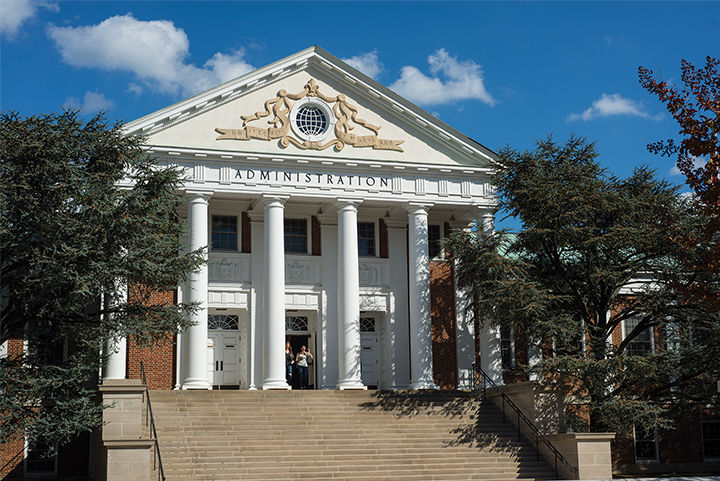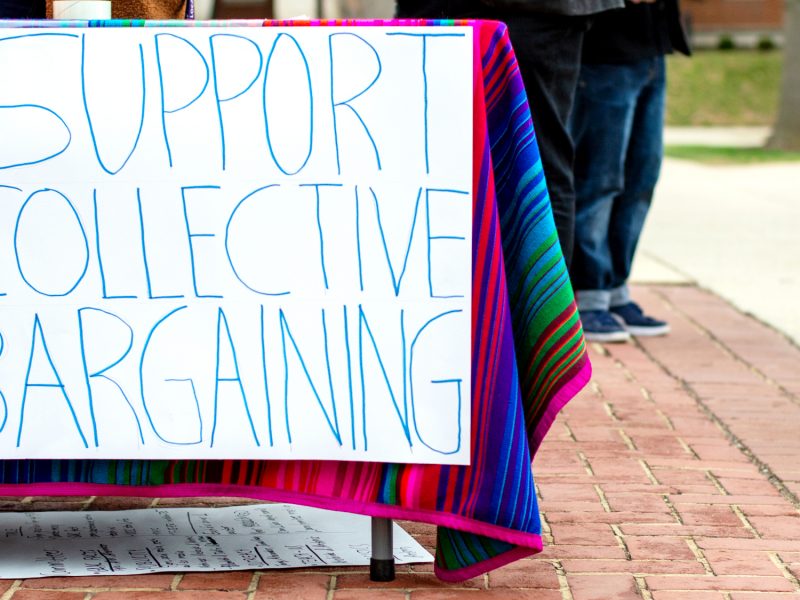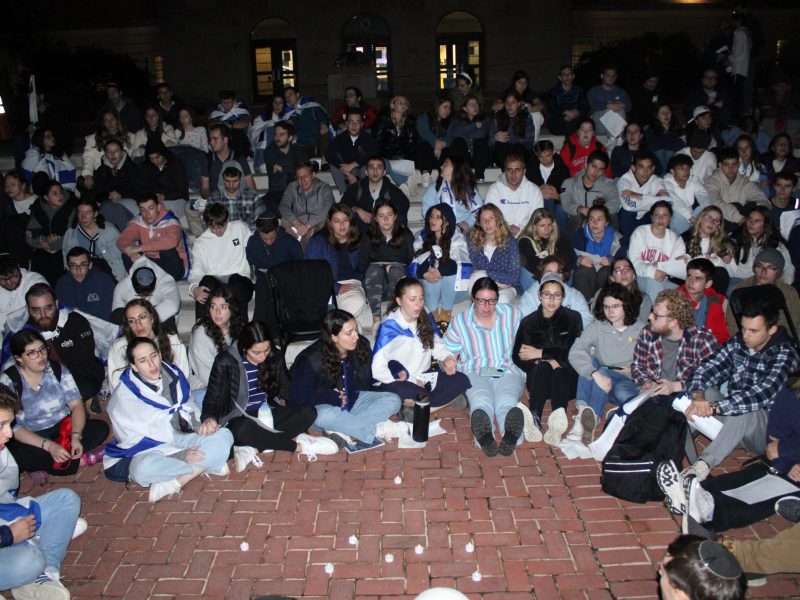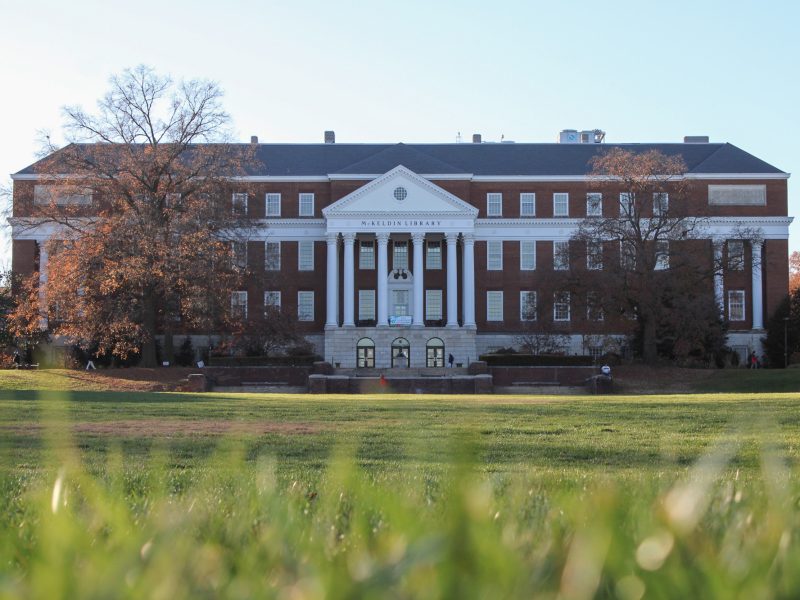By: Brian Guerinot
Last week, an opinion authored by William An titled “Is the University Student Judiciary a kangaroo court?” appeared in The Diamondback. The author made a number of false statements regarding the USJ, and I am writing to set the record straight.
Before I go further, it’s important to establish my credibility as the author of this column. I have been on the USJ for three years, during which I have presented cases of academic dishonesty and nonacademic misconduct to hearing panels. In addition, I am the chair of the USJ’s executive board.
The primary functions of the USJ are educating and holding students accountable to the policies of the University of Maryland, including the Code of Student Conduct, Code of Academic Integrity and the Residence Hall rules. These functions help keep the campus safe and uphold the integrity of a degree from this university.
The hearing process is not a legal proceeding, because the rules that are allegedly broken are not laws; they are university policies. For example, cheating is not an offense punishable by state law, so a different process governs these incidents.
The USJ ensures due process rights for all students, including the right to counsel. The academic integrity code states, “The accused student may be assisted by an advocate,” and “The accused student may also be accompanied by an advisor, who may be an attorney.” Students are entitled throughout the process to whatever type of representation they wish. We want students to be able to advocate for themselves, so we encourage them to seek assistance if they feel they need it. Students meet with Office of Student Conduct staff to go over the process and are informed about resources they may use to prepare.
An was correct in saying the academic integrity code does not guarantee counsel for every student. However, he did not explain that the decision to have representation belongs to the individual student. Moving forward from the notification of charges to an honor review can take several weeks or longer, ample time to seek and schedule representation from the Undergraduate Student Legal Aid Office or an attorney. This timeline means hearings are generally not delayed because of scheduling representation.
In the USJ hearings, the standard of evidence is clear and convincing, defined by the student conduct code as “evidence which results in reasonable certainty of the truth of the ultimate fact in controversy.” It is a high bar to meet. It is important to note that the sanctions given by the USJ are less severe than criminal court. The USJ isn’t throwing people in jail.
An claimed that because the standard of evidence is not beyond a reasonable doubt, students are denied the opportunity to absolve themselves. Just because the standard of evidence does not mirror that of criminal trials does not mean students are automatically found responsible of violations. The burden of proof is on the university, not the student.
Another false claim is that the USJ hears sexual misconduct cases. Pursuant to federal guidance, the university has a designated office that investigates these claims: the Civil Rights and Sexual Misconduct office. The university also has a review body entirely separate from USJ called the Standing Review Committee on Sexual Assault.
An missed the point of the USJ’s interview process. One interview tool is a scenario in which the circumstances of a student accused of cheating are given to interviewees who are asked to decide a sanction and rationalize their decision. The point is to understand the interviewees’ thought processes and determine their ability to make and support decisions. We do not judge the accuracy of responses but rather evaluate their decision making. Students who are selected to the USJ are trained to make appropriate decisions.
During interviews, the USJ gives applicants the task of being an admissions officer. Applicants are given a list of hypothetical candidates, all with admirable and unfavorable traits, and come to a consensus on whom to select. The point of this activity is to see how well people work in groups. There are no right or wrong answers, no “social agendas.” As with the individual interview, An misconstrued the purpose of the group activity.
The USJ decides cases based on information presented. During hearings, board members probe for as much information as possible. The goal of hearings is a thorough exposition of all facts. Members of the USJ are not mind readers, and they cannot consider information not provided to them. For this reason, both parties are invited to present every piece of information they deem relevant to their case. This ensures that boards have as complete a picture as possible when deciding the case.
An closes with a slew of provocative statements that are all without substance. Claims that the USJ is not impartial are incorrect. Our volunteers do not gain anything by deciding cases one way or the other. Our students hear cases before we decide them, using the facts presented, not on personal biases. Our students pledge to keep cases confidential and protect the educational records of students accused of misconduct.
The USJ is not a shadow body that does the bidding of university administrators and blindly punishes students. We serve the university’s interests, meaning we also serve student interests, as they are part of the university. The USJ does not administer sanctions lightly, and we do not do so only to punish. Part of every sanction is some sort of educational component. This could be the Academic Integrity Seminar, an ethics seminar, a substance abuse intervention course or many other examples.
The goal of this column was to give the campus community accurate information regarding the USJ and the student conduct process. If you still have questions or concerns, please feel free to email me or to come to the Anonymous Ask Live event on April 1 from noon to 1:30 p.m. in room 2112 of the Mitchell Building. Here is a link for more information: http://osc.umd.edu/OSC/Default.aspx. Also, please check out the student conduct office’s Anonymous Ask system here: http://osc.umd.edu/osc/AnonymousAsk.aspx. The USJ will be accepting applicants starting in the fall.
Brian Guerinot is the chair of the USJ Executive Board. He is a senior criminology and criminal justice and history major. He can be reached at bguerino@terpmail.umd.edu.



